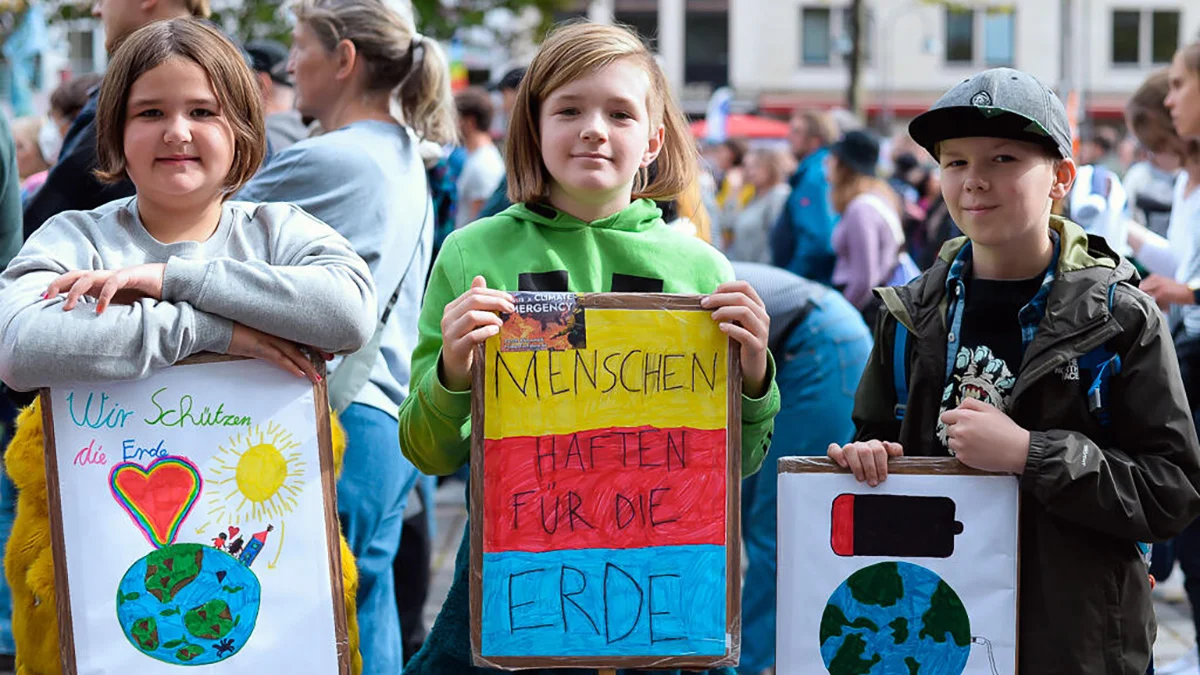The indirect consequences of climate change pose an unprecedented threat to the health, nutrition, education, development, survival and future potential of all children worldwide. Legal frameworks for climate protection are therefore important, because the climate crisis is also a crisis of children’s rights.
The Climate Protection Law, which will be voted on by the Swiss electorate on 18 June 2023, defines a pathway for reducing greenhouse gas emissions in Switzerland to net zero by 2050. Reducing greenhouse gas emissions is the only long-term solution to the climate crisis, as the burning of fossil fuels is the main cause of climate change.
For a child-centered climate policy
The climate crisis is a crisis of children’s rights: More than 1 billion children worldwide are already at extremely high risk due to climate change. And 99% of all children worldwide are exposed to at least one major climate and environmental hazard, climate-induced shock or stress. Children are also more vulnerable to the effects of climate change, as their anatomy and physiology is different to adults. In comparison to adults, children require more food and water per unit of body weight, are less able to survive extreme weather events, and are more susceptible to toxic chemicals, temperature fluctuations and disease.
Switzerland is disproportionately affected by climate change, and so are Swiss children. Temperatures are currently rising twice as fast as the global average. Melting glaciers, landslides, flooding and altered flora and fauna are having an impact on the lives and environments of children in Switzerland.
Last but not least, human health suffers under extreme summer heat. In small children in particular, the body’s own self-cooling mechanisms are not yet fully developed. Although children are affected particularly severely by the impacts of climate change, their concerns and needs are rarely taken into account in political and public debates on climate issues.
Switzerland is also a disproportionately high contributor to climate change through its greenhouse gas emissions, both domestically and in global supply chains. Switzerland must recognize its responsibility and bring about a rapid and significant reduction in its comparatively high greenhouse gas emissions. The Climate Protection Law sets out a concrete path towards this goal.
The new report from the Intergovernmental Panel on Climate Change (IPCC) underlines the urgent need to take swift and decisive action on climate protection. From the perspective of children’s rights, Switzerland and all other countries are therefore being called upon to fulfill their responsibilities and do the following:
- Reduce greenhouse gas emissions.
- Implement a “child-centered climate policy” and consider children at all times as a key and particularly vulnerable stakeholder group.
- Provide investment in climate-related adaptations of basic social services such as water supply and health systems, to improve the resilience and adaptability of children and their communities to climate change.
- Educate and empower children on sustainability and climate issues in order to prepare them for life in a world that has changed as a result of climate change.
- See children as “agents of change” and involve them in political negotiations and decisions on climate issues at the national, regional and international level.
If we are to achieve the global Sustainable Development Goals and the goals of the Paris Agreement, one of the tasks is for politicians to create the necessary framework conditions. This is the only way to bring about the changes that are needed in many areas of our society in order to guarantee a clean, safe and stable environment for children and thus safeguard their rights. Protecting the climate also protects children’s rights.
